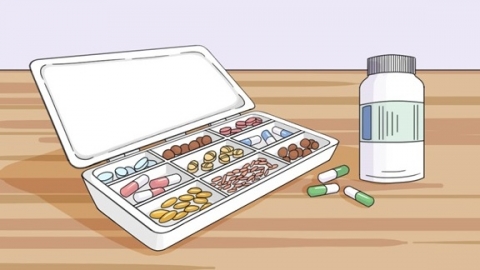Who should not take Xuesaitong (Three types of people)?
Xuesaitong is commonly available in tablet and capsule forms. Generally speaking, there is no specific saying that "three types of people cannot take Xuesaitong." However, individuals allergic to its ingredients, those with bleeding tendencies, pregnant women, breastfeeding women, and people with impaired liver or kidney function are advised against taking Xuesaitong. Detailed explanations are as follows:
1. Individuals allergic to components of Xuesaitong: The main ingredient of Xuesaitong is total saponins of Panax notoginseng. In these individuals, the immune system mistakenly identifies this component, triggering an allergic reaction. Common symptoms include skin rashes, itching, and swelling. In severe cases, symptoms such as laryngeal edema and breathing difficulties may occur, endangering life; therefore, consumption must be strictly avoided.
2. People with bleeding tendencies: Xuesaitong has effects of promoting blood circulation to remove blood stasis and dredging meridians, which can affect coagulation function. For individuals suffering from hemophilia, thrombocytopenia, or currently experiencing gum bleeding, skin bruising, gastrointestinal bleeding, or in the recovery phase of cerebral hemorrhage, taking Xuesaitong may worsen bleeding symptoms, leading to increased blood loss and prolonged bleeding time, which is detrimental to recovery.

3. Pregnant women: The blood-activating effect of Xuesaitong may stimulate uterine contractions. Taking it during pregnancy increases the risk of miscarriage or premature birth, threatening fetal stability and maternal health. Therefore, Xuesaitong should be avoided throughout pregnancy.
4. Breastfeeding women: Components of Xuesaitong may be transferred to infants through breast milk. Since infants' organs are not fully developed and they have low tolerance to drug components, it may cause adverse reactions such as gastrointestinal discomfort or allergies in infants, affecting their health. Therefore, breastfeeding women are advised against taking it.
5. Patients with impaired liver or kidney function: The components of Xuesaitong need to be metabolized through the liver and kidneys. Patients with impaired liver or kidney function have reduced metabolic capacity. Taking Xuesaitong will increase the burden on the liver and kidneys, possibly causing further damage to liver and kidney function and drug accumulation. This may lead to adverse reactions such as nausea, vomiting, and fatigue, so it must be strictly avoided.
The above-mentioned groups should clearly understand their contraindications to avoid physical discomfort caused by taking Xuesaitong. Other individuals who need to take Xuesaitong should do so under the guidance of a qualified physician, strictly controlling dosage and treatment duration. Self-medication should be avoided to ensure safe drug use.




